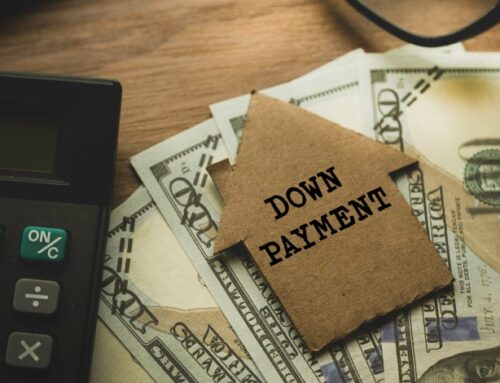Being a first-time homebuyer often comes with mixed emotions. You’re excited because you’re achieving a significant milestone. However, you may be intimidated by the entire process, especially with the intricacies involved with purchasing your first home.
One of the first and most important steps during the homebuying process is to shop around for a mortgage lender that offers home loan options tailored toward your needs.
When meeting with different mortgage lenders, you should come prepared with questions to ask. This article will delve into seven essential questions to ask your mortgage lender before you commit to signing your name on the dotted line.
Questions To Ask A Mortgage Lender
Below is a compilation of various mortgage questions to ask your potential mortgage lender. This isn’t meant to be an exhaustive list but more of a guide to help you steer the conversation in a manner that is productive to your specific needs.
1. What Will My Fees and Payments Be?
When purchasing a home, specifically your first home, it’s essential to outline a budget. By developing and strictly adhering to that budget, you’ll know how much home you can afford. As a result, you can narrow down your search and set realistic expectations.
If you ask your mortgage lender how much home you can afford, they’ll evaluate your income, credit report and assets. After the loan officer analyzes your financial information, they’ll provide you with an overview of your potential monthly payment and any other associated expenses such as interest rates, closing costs and property taxes. Additionally, they can help you determine a down payment based on their home loan options.
Check out Arizona Central Credit Union’s mortgage calculator if you want to get a head start before meeting with your mortgage lender. This tool can help provide you with an estimate on how much house you can afford.
2. Which Types of Mortgage Terms Do You Offer?
Not all mortgage lenders offer the same types of home loans and terms. There isn’t a particular type of mortgage that is better than another. You’ll need to find a mortgage option tailored to your specific needs and long-term goals.
Ask your lender about the following types of mortgage options:
- Conventional loans are among the most popular loans in the United States. The mortgage lender may offer fixed-rate, adjustable-rate, or both options. Generally, conventional loans can carry 10, 15, 20, 25 and 30-years terms.
- FHA Home Loans are government-insured mortgage options. FHA loans are ideal for borrowers with lower income and credit scores. FHA loans come with either a 15-year or 30-year fixed-rate term.
- USDA Home Loans are backed by the United States Department of Agriculture to help mid-to low-income borrowers purchase homes in eligible areas. USDA loans are only offered as 30-year fixed-rate options.
- VA Loans are insured by the United States Department of Veteran Affairs. VA loans are eligible for veterans, active-duty members and qualified surviving spouses.
3. What Is the Interest Rate and APR?
You should inquire about possible interest rates to help determine how much interest you’ll be paying throughout the duration of your mortgage. The interest rate you receive is based on a variety of factors such as your credit score, loan type, size of the down payment, the term, the location of your home and the overall amount of the principal on the loan.
In addition to inquiring about the interest rate, you should ask about the annual percentage rate (APR). APR will provide you with a holistic view of the borrowed money. APR includes the interest rate and fees the lender charges you for originating the loan.
4. What Credit Qualifications Do You Require?
A credit score is a three-digit number indicating your credit risk and the likelihood that you’ll pay back the money you borrowed.
Credit scores are also one of the main metrics lenders use to determine what loans you qualify for as well as the terms and rates. The higher the credit score, the better chance you have to obtain a mortgage at favorable terms and rates.
If you have bad credit, it’s still possible to secure a mortgage, but your options may be limited. We recommend implementing strategies to help improve your credit score before purchasing a home.
Credit score qualifications may vary depending on the lender you choose. It’s imperative to ask your lender about credit qualifications early in the homebuying process.
5. What’s the Down Payment Needed to Buy a House?
You may have heard you need a minimum 20% down payment to purchase a home. However, that is a popular misconception. Depending on the mortgage option, you may be able to pay as little as 3% down. Some government-insured loans allow qualified borrowers to secure a mortgage with 0% down.
While putting a larger percentage down will help decrease the monthly payment, it’s not a prerequisite to purchasing a home. According to the National Association of REALTORS®, 69% of first-time homebuyers put less than a 20% down payment.
Ask your mortgage lender how much of a down payment will be needed at closing. Preparing for the down payment early in the homebuying process may help closing go smoothly.
6. What Will Closing Costs Be?
It’s crucial to determine closing costs early on to start allocating your funds appropriately. Closing costs are the fees you pay for the lender to close out the loan.
Some of the expenses associated with the closing process may include:
- Down payment
- Loan origination fees
- Escrow fees
- Property tax
- Homeowners insurance
- Title insurance
Closing costs vary by state, your down payment and the size of the property. Closing costs are generally 2% to 5% of the loan value.
Arizona homebuyers can expect to pay approximately $4,200 in closing costs. According to research conducted by ClosingCorp, the average closing cost for a single-family residential home in Arizona was $4,190.34 in 2020.
7. Are There Income Requirements For Buying A House?
There is no set income threshold for purchasing a home. However, your income does play a significant role in determining how much home you can afford. When considering you for a loan, lenders will evaluate all your sources of income, including commission, bonuses, child support or alimony, military benefits, etc.
You should ask your lender what types of income they consider when determining your qualification for a home loan. Moreover, you should ask what documents you’ll need to provide them to prove your income. The documents needed will vary depending on your employment status.
Finance The Purchase Of Your First Home With Arizona Central Credit Union
The homebuying process is stressful enough, especially for first-time homebuyers. Coming with questions prepared to ask your mortgage lender can help make the homebuying process more manageable. Make sure you ask the lender specific questions to help ensure you are making the right decision.
Are you ready to start the homebuying process? Contact our mortgage specialists to see how we can help you secure your first home.
If you’re still on the fence about purchasing a home and would like to conduct further research, check out our blog. We discuss various aspects of the homebuying process, from the preapproval process to closing.




